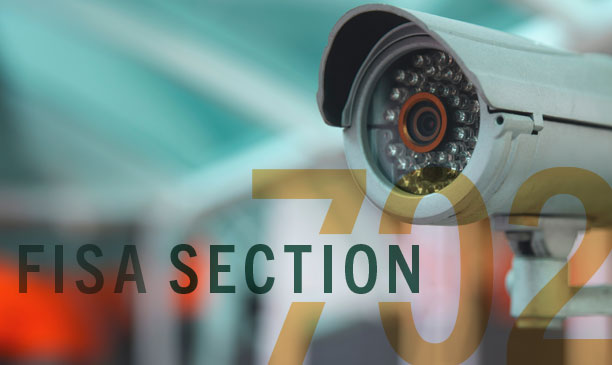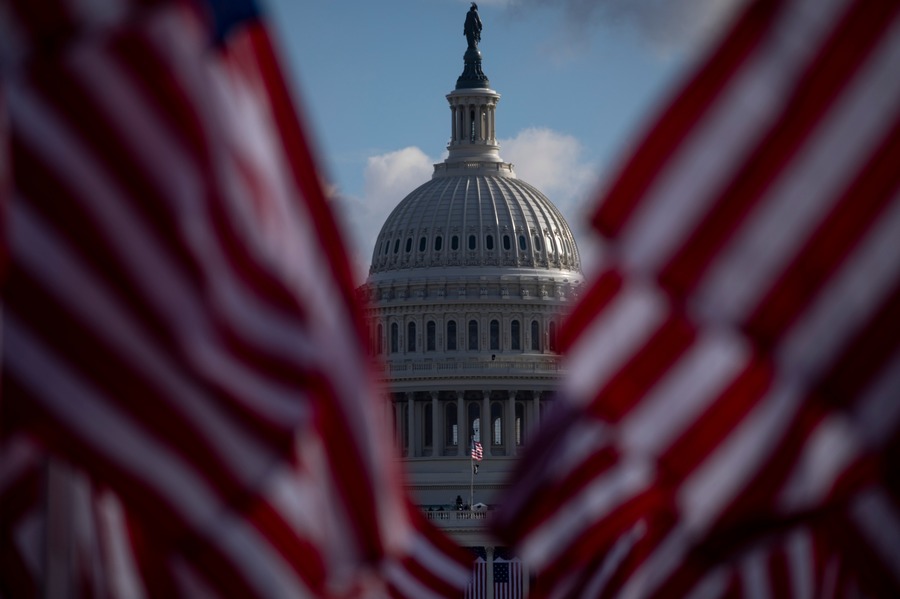The protracted battle for President Trump’s financial records continues, with Deutsche Bank facing some unexpected heat.
On Aug. 23, a three-judge panel from the U.S. Court of Appeals for the Second Circuit heard oral arguments from two House committees seeking to subpoena the financial records of Trump and his family from two global financial institutions, Deutsche Bank and Capital One.
The House Financial Services and Intelligence committees had issued the subpoenas in early April as part of a larger investigation into Russian money-laundering and financial crimes, marking the first time that Congress issued a subpoena to a third party for a president’s records. While neither Capital One nor Deutsche Bank initially challenged the subpoena, Trump filed suit in his personal capacity, arguing that the subpoenas lacked a legitimate legislative function and crossed the line into law enforcement. In Trump et al. v. Committee on Financial Services et al, U.S. District Court Judge Edgardo Ramos for the Southern District of New York denied Trump’s motion for a preliminary injunction and upheld the subpoena request, noting “the power of Congress to conduct investigations is inherent in the legislative process.” Trump appealed. The Department of Justice summited an amicus brief in support of his position, available here.
As in the lower court action, Trump was represented by attorney Patrick Strawbridge, and the House committees were represented by House General Counsel Douglas Letter.
Senior Judge Jon Newman, Judge Peter Hall and Judge Debra Ann Livingston composed the panel. On the whole, Hall and Newman seemed largely sympathetic to Letter’s arguments that Congress’s real purpose was to investigate money-laundering in the United States through a review of Deutsche Bank’s operations. Letter emphasized that Deutsche Bank had lent money to the Trump family when no other bank would—suggesting widespread foul play and anti-money-laundering violations. “Any suggestion that this is just about Trump is a lie,” he said. Meanwhile, Livingston seemed less convinced that subpoenas were tailored appropriately, emphasizing their breadth throughout the hearing.
The most unusual aspect of the hearing came at the end when Judge Hall and Newman asked counselors for Deutsche Bank and Capital One whether they actually possessed Trump’s tax returns, which would presumably be encompassed by the subpoenas. Raphael Prober, representing Deutsche Bank, refused to answer the question, citing contractual obligations and the Gramm-Leach Bliley Act (regarding the sharing of private financial information). Unconvinced, Judge Hall told him he could not “contract his way out of a court order” and pressed him to answer. The court ruled that Deutsche Bank and Capital One will need to provide the court with a more concrete answer within 48 hours.
***
Strawbridge begins by noting that, while the president is suing in his individual capacity and not in his official capacity, the congressional subpoenas are nonetheless targeted at Trump because he is the president of the United States—raising what he identifies as separation of powers concerns.
Judge Newman interrupts to ask whether Strawbridge is raising a question of motive. Strawbridge says no—he is merely looking to the “real object of the subpoena.” Endeavoring to distinguish a line of cases that preclude inquiring into motive, Strawbridge argues that it’s still appropriate to inquire into the “real object” and “real legislative purpose.”
Judge Newman asks whether ascertaining a “real object” thus renders any other object Congress might be seeking a “sham.” Strawbridge, citing McGrain v. Daugherty and Watkins v. United States, says that the court is obligated to look carefully when a case involves separation of powers concerns. He continues by noting the family is one of many families that engages in real estate sales/transactions, and, as suggested by the Department of Justice’s amicus brief, should probably be the last for Congress to investigate.
But Judge Newman does not seem to be convinced, asking whether it’s proper for the court to question the discretion of Congress in deciding how to conduct an investigation. Strawbridge punts the question and suggests that the court follow the model of United States v. AT&T, where the U.S. Court of Appeals for the D.C. Circuit recommended that the disputing parties engage in private negotiations.
When asked by Judge Newman whether the Supreme Court has ever said that a court should say to Congress that its identified legislative purpose is not real, Strawbridge waffles somewhat in answering. He cites the standard outlined in Watkins, which considers whether a subpoena request has been pursued for a legislative purpose and is sufficiently pertinent to that purpose. But Judge Newman rejects the analogy to Watkins, on the grounds that the Supreme Court didn’t say that there was a lack of purpose in that case, only that the resolution was too broad. He restates the question: “Has the Supreme Court ever said that a court should say to the Congress, ‘Yes you’ve identified a purpose, but we don’t think it’s the real one and so we’re going to stop you’?” Strawbridge says that this was precisely what happened in Kilbourn v. Thompson: in that case, Congress argued that it needed to ascertain the plaintiff’s role in a bankruptcy, but the Supreme Court rejected the stated legislative purpose on the basis that Congress was improperly engaged in law enforcement.
Judge Newman asks Strawbridge whether the subpoenas at issue are analogous to Kilborn, in so far as they are “all” or “only” about law enforcement? Strawbridge says they are. Newman acknowledges the potential for disagreement on that assessment, and pushes the original question further: Does any Supreme Court authority exist that would allow a court to disregard a legislative purpose not related to law enforcement? Strawbridge takes issue with the word “disregard” and says that the court must do more than identify a legislative purpose; it must evaluate the pertinence of the subpoenas to that stated purpose.
The questioning then shifts to House Resolution 507, which was passed in July 2019 and “ratifies and affirms current and future House investigations into the President.” Newman asks whether House Res. 507 was relevant. Strawbridge says no: It’s irrelevant because it came well after the date of the April subpoena and didn’t address the relevant inquiry. He cites the Department of Justice’s concern with the breath of the resolution and corresponding subpoenas.
Judge Livingston redirects questioning to the Right to Financial Privacy Act (RFPA), which was passed in 1978 to protect the privacy of customer records in the possession of financial institutions. Strawbridge argues that the language of the act and its congressional history led to the “inescapable conclusion” that it’s not limited to the executive branch alone but also applies to Congress. (Under the RFPA, federal authorities are required to provide notice and the opportunity to object before obtaining private financial records, which Congress did not do in this case.)
Newman interjects, questioning Strawbridge’s analysis through reference to an unenacted amendment to the RFPA. Strawbridge argues that courts can’t infer much from unenacted amendments, but Newman pushes back: This amendment came from the Treasury Department, he notes. Strawbridge insists that it still didn’t matter because it would have been redundant. He cites an amendment in the RFPA exempting the Government Accountability Office (GAO), arguing that the exemption wouldn’t have been necessary if the law didn’t already apply to Congress, because the GAO is indisputably a legislative body.
Judge Livingston cites Letter’s argument that it wasn’t so clear at the time the RFPA was passed whether the GAO was a legislative agency or not. She then turns to Section 3408 of the RFPA, which uses language traditionally employed to talk about agency bodies, and presses Strawbridge to reconcile that language—which seems not to refer to Congress—with his theory that the RFPA limits Congress in the same way it limits the executive. In response, Strawbridge cites a provision that exempts congressional committees from the requirements of the RFPA. He argues that such an exemption would not have been necessary if the law didn’t apply to the executive and legislative branches alike.
***
General Counsel Letter takes the podium, acknowledging Counsel Jennifer Reed from the Financial Services Committee and Daniel Noble from the Intelligence Committee. Letter starts by noting that District Court Judge Ramos had already considered many of the arguments made by Strawbridge and rejected them; relatedly, he continues, the Supreme Court also rejected many of these same arguments in McGrain.
Judge Livingston interrupted Letter’s opening statement to ask whether a subpoena of the type issued by Congress, which seeks the president’s personal information, raises separation of powers concerns, as the Justice Department argues. Letter says no. He casts the Justice Department brief as “hypothetical” in so far as it focuses on a scenario whereby Congress’s actions would hinder or prevent the president from performing an important function, which the current subpoenas don’t do. Livingston asks whether it’s correct to say that this is the first time Congress has issued a subpoena to a third party for a president’s records in aid of legislation, and Letter says that he isn’t aware of any others.
Letter then returns to his previous answer, noting that there would be a separation of powers problem only if Congress had acted so as to disrupt the president’s work. But, he adds, “This is nowhere close to that. This should have no effect whatsoever on Mr. Trump’s time.” He questioned how a subpoena could raise separation of powers concerns when the president has challenged it in a personal, as opposed to official, capacity.
Judge Livingston asks whether the court should proceed warily in light of this potential separation of powers problem. Letter says no, because the subpoenas don’t impinge on Trump’s time but, rather, on that of the banks: “You have a situation where Mr. Trump is going to Deutsche Bank to ask for very large loans when no other bank apparently will touch him.… For obvious reasons, both committees here want to know why is it that Deutsche Bank would be willing to lend a lot of money that no other bank would touch long before he was president of the United States.”
Judge Hall asks how that goal fits with the legislative purpose Congress has identified, and Judge Livingston interjects to say that Letter’s characterization sounds like a law enforcement purpose. The key inquiry at issue, Letter says, is why these banks were willing to lend to Trump under circumstances in which no other bank would consider lending him money (namely, Trump’s repeated loan defaults and one lawsuit). The ultimate goal, he continues, is to develop better regulation to minimize risky activities by banks. He notes that the Financial Services Committee had subpoenaed many banks that have absolutely nothing to do with Trump or his family. When asked by Judge Hall when those subpoenas were issued, Letter says that most of the subpoenas were issued simultaneously—emphasizing the fact that the investigation into money-laundering is industry-wide.
Judge Newman then asks Letter to explain how certain paragraphs of the subpoena related to one another, and Letter requests more time to provide an answer. Newman continues by asking a hypothetical question about whether a check issued by a company to cover an employee’s medical expenses would be encompassed in the subpoena requests. Yes, says Letter; the subpoenas would cover that check. Newman then pushes for further clarification about what safety net exists in the subpoenas for sensitive information not directly pertinent to the inquiry. Letter argues that if Congress thought the subpoena would include unnecessary information, it would be willing to exclude that information from review.
Newman asks whether the documents produced in response to the subpoenas will be made public, to which Letter replies that this will be up to the two committee. Letter emphasizes that both committees would entertain arguments about information that should be redacted.
Turning to the question of tax returns, Judge Newman asks: Do you know if the banks even have the tax returns Congress is looking for? Letter says that the committees don’t know for sure, but it would be common for the banks to have them given the size of the loan issued to Trump before he became president. When asked whether the committee has complied with the law governing requests for tax returns, Letter says he will look in that specific question but that Trump hasn’t raised it in the litigation.
Judge Livingston notes the subpoenas are broad and asks Letter whether the district court was correct to believe it lacks the authority to address over-breadth. Letter says yes: Iit’s not the function of courts to review subpoenas line-by-line. With respect to a potential negotiation—which Strawbridge called for—Letter says that Trump has given no reliable indication that is what he wants, calling any overtures to the contrary insincere. Judge Hall interjects to support Letter and differentiate the AT&T precedent cited by Strawbridge for negotiations, noting that it came after the parties had already undertaken protracted negotiations and that it concerned sensitive national security matters.
Letter reiterates that the subpoenas do not raise separation of powers questions, because the president would not be disrupted by them. Referring to the parallel Mazars case (see oral argument summary here), Letter says that Trump suggested at one stage that there was something wrong with the subpoenas because the House sought the documents from the banks and not from Trump directly—an oddity given that serving the subpoenas to Trump would have certainly disrupted his presidency. This line of confused argumentation, Letter argues, points to insincerity.
Judge Livingston returns to the question of precedent, stating that Letter’s inability to cite any precedent for similar subpoenas made her think that she should consider the Justice Department’s argument: namely, that there should be a legislative purpose articulated with a certain degree of particularity such that judicial review is possible. She proffers that Congress might have formulated the subpoena differently to obtain the information it seeks.
Letter says that Congress is engaged in lots of case studies besides those focused on Trump, emphasizing that “any suggestion that this is just about Trump is a lie.” He reminds the panel that the Intelligence Committee subpoena aims to determine if there is foreign influence over this administration. Because Trump’s sons are attempting to do business with foreign government, Letter continues, Congress needed to ask about family members. He cites examples where Congress has investigated the actions of the president, which the judges endeavor to distinguish. Livingston restates her question—is there really enough “connective tissue” linking the breadth of the subpoenas to Congress’s purpose?
Turning to the standard of review, Livingston asks what the appropriate standard should be in this case. Letter says he isn’t positive which standard applied, given conflicting precedent in the U.S. Court of Appeals for the Second Circuit. But he is satisfied with the “serious likelihood of success” standard.
Newman asks Letter whether he attaches any significance to the fact that the Justice Department filed an amicus brief, as opposed to intervening directly. Letter declines to say. Newman then asks a series of follow-up questions related to the House procedure for issuing subpoenas.
Discussion turns back to legislative purpose. Letter agrees with Strawbridge’s analysis that Congress can’t carry out law enforcement but rejects Strawbridge’s analysis of the RFPA. He argues that the law does not apply to Congress because the Supreme Court had already affirmed that Congress has power to review financial records before the RFPA was passed, and Congress would not have forfeited the power without comment.
***
Strawbridge retakes the podium for rebuttal. He first notes that law enforcement is a statutorily defined term, which is broader than Letter suggested. He then focuses on Letter’s suggestion that the Trump team has been insincere in its efforts to negotiate, stating that he made an offer to discuss limiting the subpoena multiple times.
He focuses his closing comments on the guardrails outlined in Kilborn and cited in McGrain, regarding three circumstances that should give a court pause in enforcing a congressional subpoena. Underscoring the breadth of the subpoenas, he says that they don’t just implicate checks issued for employees’ medical bills—they implicate “every single Diet Coke that a teenager bought using a credit card from Capital One.” He also rejects Letter’s analysis that the subpoenas don’t apply to Trump’s grandchildren. He concludes by arguing that this is the broadest subpoena ever served that targets a sitting president and recommends that the court follow the model provided for in AT&T and order remediation.
***
With just a few minutes left, Judge Hall asks the legal counsel for Deutsche Bank, Raphael Prober, and Capital One, James Murphy, to appear. He asks Prober whether the bank had the tax returns of any of the named entities. Prober refuses to respond, citing contractual obligations.
Confused, Judge Hall asks what privilege Prober is asserting. Prober responds that the bank has contractual obligations to its clients. Frustrated, Judge Hall asks, “You think that you can contract away the obligation to answer a court’s question?” Prober cites the Gramm-Leach Bliley Act protecting private financial information, and Judge Hall rejects the answer: “We need to know.” After a heated exchange during which Prober says he will “explore” the issue and that they could “continue” the conversation, Judge Hall requests that Deutsche Bank and Capital One—which also declined to answer—tell the court within 48 hours whether they do or do not have the president’s tax returns. The hearing concludes with a discussion of how much of the subpoenaed materials the banks had collected so far. And with that, the courtroom clears out.





